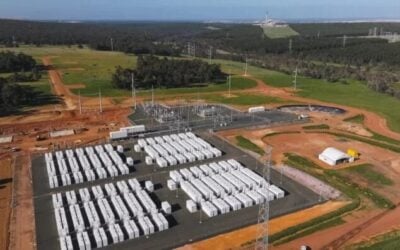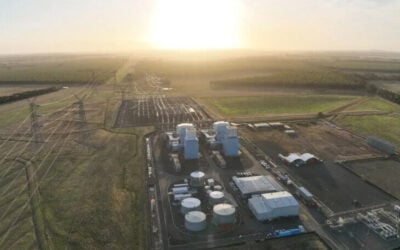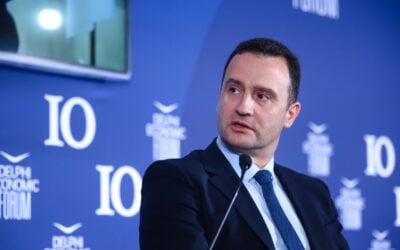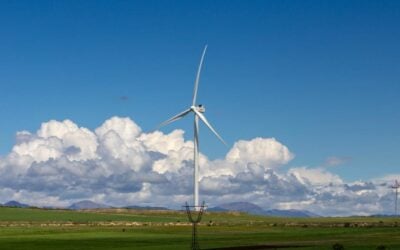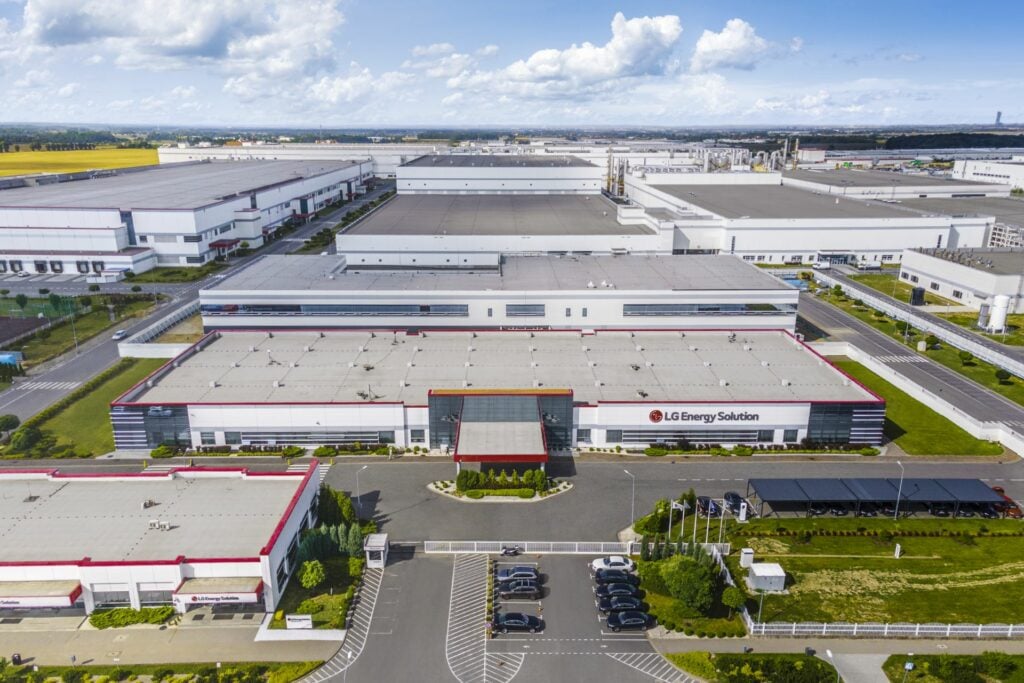
LG Energy Solution has confirmed that it will manufacture the batteries for a 263MW/900MWh BESS project in Poland at its plant in Wroclaw, in the southwest of the country.
LG Energy Solution and state-owned power producer PGE announced the supply agreement for the battery energy storage system (BESS) in Zarnowiec in January this year, which is set to enter commercial operation in 2027.
Enjoy 12 months of exclusive analysis
- Regular insight and analysis of the industry’s biggest developments
- In-depth interviews with the industry’s leading figures
- Annual digital subscription to the PV Tech Power journal
- Discounts on Solar Media’s portfolio of events, in-person and virtual
Or continue reading this article for free
The Korea-headquartered lithium-ion OEM made its own announcement yesterday (24 March), saying it would supply 981MWh of grid-scale ESS batteries between 2026 and 2027, indicating a 9% overbuild relative to the nameplate capacity. LG Energy Solution will provide a turnkey solution comprising BESS and engineering, procurement and construction (EPC) in partnership with local companies.
The company confirmed the project will use lithium iron phosphate (LFP) long-cell batteries manufactured at its 86GWh plant in Wroclaw, Poland. It didn’t specifically say the full containerised BESS would be manufactured in Poland, however.
The plant, along with others in LG’s global portfolio, partially pivoted to manufacturing for ESS after a slowdown in EV demand growth. This includes a factory complex in Michigan, US, at which EV cell production lines are being repurposed, with LG Energy Solution announcing a US$1.4 billion in the retooling via a regulatory filing in February.
Jaehong Park, CEO of LG ES Vertech, the company’s US-based energy storage system integrator division, recently spoke with ESN Premium for an exclusive interview. Park said the company will have 16.5GWh of annual LFP cell production capacity in place by August across three lines of roughly 5.5GWh each.
The CEO also discussed adaptations being made to switch from making nickel manganese cobalt (NMC) EV cells to LFP ESS cells at the factory in Holland, Michigan, along with the parent company’s overall strategy toward manufacturing BESS cells in North America (Premium access).
“This project is one of the largest ESS initiatives led by LG Energy Solution in Europe,” said Hyung Kim, head of the ESS battery division at LG Energy Solution.
Few ESS gigafactories in Europe
The confirmation that the batteries will be produced locally is noteworthy after a tough few years for Europe’s gigafactory space. Its big, homegrown names Northvolt and Freyr both failed in their attempts to set up local battery manufacturing, with Freyr’s failure all the more relevant as it was focused on the ESS market.
Most gigafactory projects that have progressed further have been tied to a vehicle OEM or been launched by an established OEM from East Asia, like LG Energy Solution’s in Poland. Within those groupings, the capacity announced for the ESS market has been negligible – LG’s may well be the most significant.
Capacity market win for PGE’s Poland project
PGE’s BESS project was one of 2.5GW that won a capacity market (CM) contract in December 2024, for which the obligation will begin in 2029, and projects that won in that auction and the previous one in 2023 are starting to reach final investment decision (FID) and enlisting suppliers.
Earlier this month, IPP Greenvolt enlisted BYD for two projects totalling 1.6GWh, part of a portfolio that won the bulk of BESS wins in the 2023 CM.

